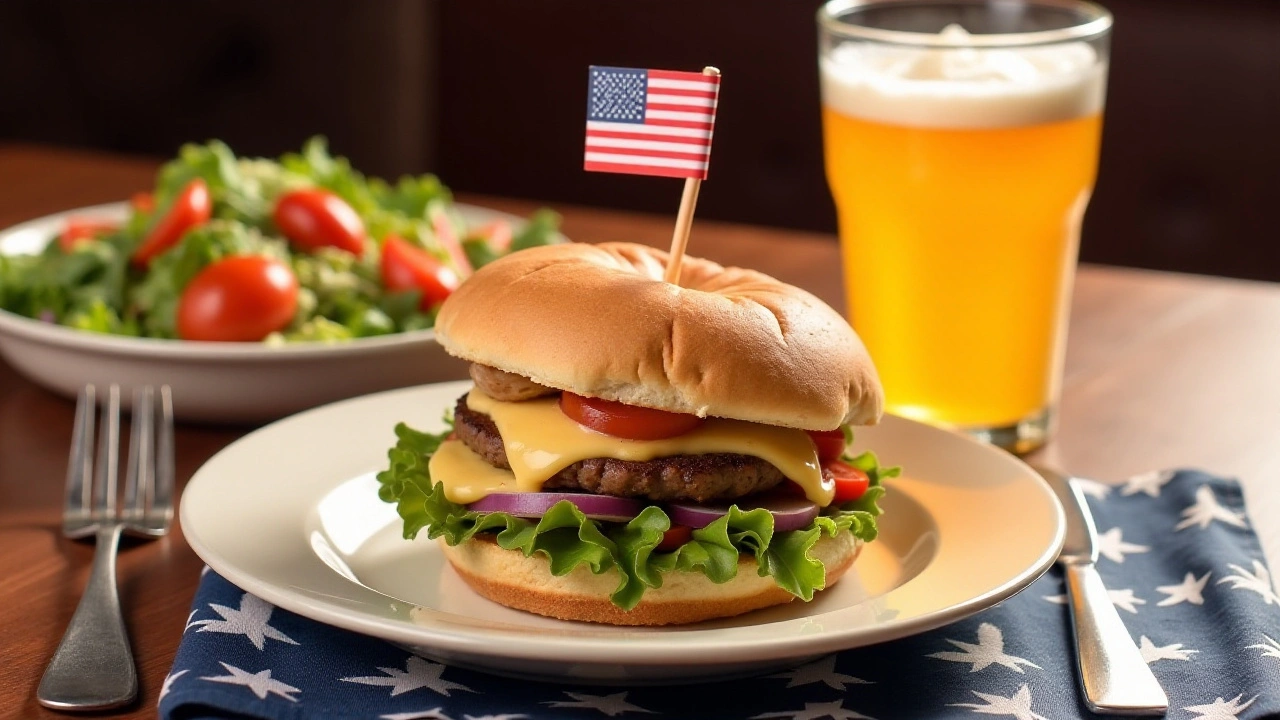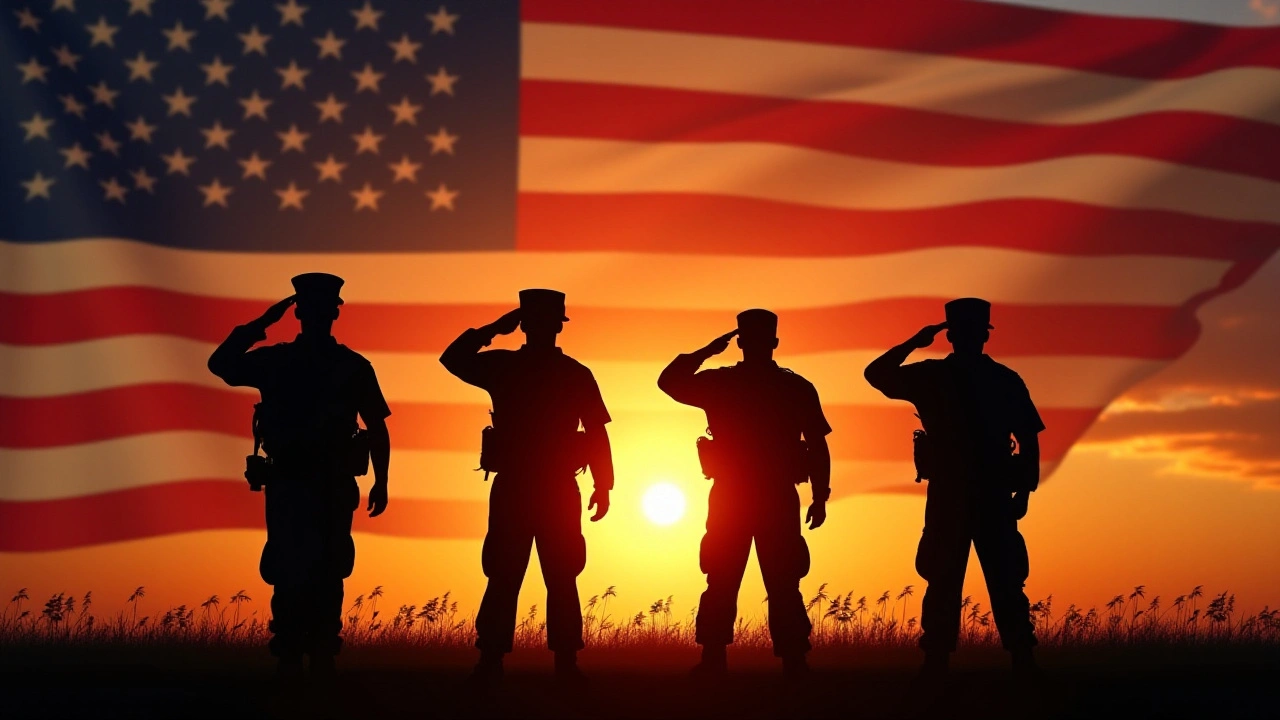Veterans Day, a momentous occasion observed annually on November 11 in the United States, pays homage to the nation's military veterans, celebrating their sacrifice and service. Originating as Armistice Day in 1919, this day marks the ceasefire agreement that ended World War I. President Dwight D. Eisenhower signed a bill in 1954 officially renaming the holiday as Veterans Day, expanding its recognition to honor veterans of all wars. Interestingly, this day isn't just about remembrance; it significantly impacts the rhythm of American daily life, influencing business operations across the country.
Federal and Banking Operations on Veterans Day
One of the first noticeable changes on Veterans Day is the closure of non-essential federal operations. This includes post offices across the nation, ceasing mail deliveries for the entire day. While UPS and FedEx continue their delivery services, individuals will not receive their regular mail. Banks, including well-known institutions such as Wells Fargo, Bank of America, PNC, and Capital One, also observe the holiday by closing their physical branches. However, the convenience of modern technology allows customers to continue managing their finances through online banking and ATMs, providing a degree of normality amidst the holiday.
Retailers and Their Veterans Day Hours
Conversely, retail establishments, supermarkets, and various stores remain open, many operating with their usual business hours. Chains like Costco, Target, Walmart, Whole Foods Market, and others recognize the commercial potential of the day, possibly accommodating holiday shoppers with promotional offers. However, it's wise for customers to verify specific location hours, as some variances may occur based on local management decisions. These open schedules help ensure that everyday activities, such as grocery shopping or grabbing a quick coffee at Starbucks, continue uninterrupted.
The Financial Markets' Unique Holiday Schedule
While most parts of the corporate world take pause momentarily, the stock market remains operational on Veterans Day. Both the New York Stock Exchange and Nasdaq retain their schedules, enabling traders and investors to conduct their transactions without delay. However, the bond market does take a backseat, closing alongside federal offices. This dichotomy within financial operations may seem perplexing, yet it underscores the intricate logistics and planning that underpins the economic framework of the country.

Reflecting on the Significance of Veterans Day
Beyond its commercial and operational bearings, Veterans Day stands as a poignant reminder of the valor and dedication of military personnel. It's a day ripe with parades, ceremonies, and events nationwide that call upon citizens to reflect and express gratitude. Schools that remain open often incorporate educational programs to teach students about the military and the importance of this observance, ensuring that younger generations appreciate the historical context of the day.
Respite and Recreation: The Extended Weekend
Another aspect of Veterans Day, especially when it falls on a Friday or Monday, is the extension of the weekend for many Americans. This provides an opportunity for people to plan short trips, indulge in leisure activities, or simply enjoy the benefits of an extended break from their workload. For some, this aligns with autumnal transitions—engaging in family gatherings or starting early holiday preparations, enhancing the sense of togetherness alongside the peace and solemnity that the holiday embodies.

Conclusion: Veterans Day's Multifaceted Impact
Ultimately, Veterans Day is a distinctive federal holiday intertwining historical reverence with contemporary practicalities. While it's a day that underscores the sacrifices of veterans, its influence reverberates through various aspects of daily life, from the closure of banks and postal services to the bustling activities within retail sectors and financial markets that continue their operations. Its place on November 11 offers a collective pause for nationwide gratitude, gratitude that threads through civic ceremonies down to individual moments of reflection, standing as a testament to those who served and a reminder to future generations of the legacy that shapes the country's freedoms and liberties.

Eduardo Lopez
November 11, 2024 AT 21:33Veterans Day isn’t just about fireworks and parades; it’s a reminder of the sacrifices that shape our nation’s identity.
When federal offices shut their doors, you can feel the ripple effect across the entire economy.
Bank branches lay dormant, yet the digital world keeps humming, proving how far we’ve come.
It’s a day when the country collectively pauses, and that pause deserves respect.
Even retailers that stay open should acknowledge the historical weight behind the day.
Let’s honor the veterans by recognizing both the solemn history and the modern logistics that keep the country running.
Nancy Perez de Lezama
November 13, 2024 AT 06:39The article glosses over the complexities of federal closures on Veterans Day.
Matt Heitz
November 14, 2024 AT 15:44From a policy implementation perspective, Veterans Day functions as a statutory holiday that triggers a cascade of operational discontinuities across the federal infrastructure.
The cessation of postal services, codified under Title 39, imposes a temporary suspension of bulk mail logistics, thereby reallocating carrier capacity to private couriers.
Banking institutions, while maintaining online transaction pipelines, experience a reduction in in‑person cash handling, which statistically impacts the daily float turnover rates.
Conversely, the equity markets remain operative, underscoring the bifurcation between fiscal policy instruments and securities exchange regulations.
This dichotomy is emblematic of the broader institutional resilience embedded within the capitalist framework.
Moreover, the labor agreements governing federal employees necessitate compensatory leave accrual, a nuance often omitted in popular narratives.
Retail entities exploit the consumer surplus generated by the long weekend, deploying dynamic pricing algorithms to maximize marginal revenue.
In sum, Veterans Day serves as a microcosm of systemic interdependence that merits deeper analytical scrutiny.
Susan Mark
November 16, 2024 AT 00:50Veterans Day operates on multiple layers that most people only glance at during a quick news scroll.
First, the closure of federal agencies means that everything from passport renewals to tax processing is put on hold, which can create a backlog that spills into the following weeks.
Second, while brick‑and‑mortar banks shut their doors, the advent of mobile banking apps ensures that consumers can still transfer funds, pay bills, and monitor accounts without a hitch.
Third, the stock exchanges stay open, allowing investors to react to market news, yet the bond market pauses, highlighting a strategic separation in financial operations.
Fourth, retailers see an opportunity: extended weekends boost foot traffic, and many stores run targeted promotions to capture the discretionary spending of veterans and their families.
Fifth, logistics firms like UPS and FedEx keep running, so packages still move, but the lack of USPS delivery can cause slight delays for those relying on regular mail.
Sixth, schools that remain open often incorporate educational modules about the history of the holiday, providing students with a contextual understanding that goes beyond a simple flag‑raising ceremony.
Seventh, local governments may hold parades or ceremonies, which not only honor service members but also foster community cohesion and civic pride.
Eighth, the holiday can serve as a mental health break for many workers, especially those in high‑stress professions, offering a chance to recharge before returning to routine tasks.
Ninth, for veterans themselves, the day can be a mixed experience-some appreciate the public acknowledgment, while others feel the gestures are superficial.
Tenth, businesses that decide to stay closed often do so out of respect, but they must also consider the economic impact of a lost day of sales.
Eleventh, the Federal Reserve’s policy meetings are typically scheduled around major holidays, ensuring that monetary policy decisions are not rushed or disrupted.
Twelfth, the transportation sector, especially airlines, may see a slight dip in travel as families opt for shorter trips rather than long vacations.
Thirteenth, the hospitality industry often offers special discounts or complimentary services to veterans, recognizing their contributions in a tangible way.
Fourteenth, the interplay between public sentiment and corporate marketing can sometimes lead to over‑commercialization, which detracts from the solemn purpose of the day.
Fifteenth, nonetheless, the overall effect is a coordinated pause that reminds the nation of its shared history while keeping essential services operational.
Sixteenth, understanding these nuances helps us appreciate how a single holiday can ripple through finance, commerce, education, and community life, reinforcing the idea that remembrance and practicality can coexist.
Jason Jennings
November 17, 2024 AT 09:55Honestly, the piece kind of skims the surface and leaves out the gritty reality of how many small businesses actually suffer on a holiday like this.
Sure, big retailers make a killing, but the local mom‑and‑pop shops often have to scramble for staff who’re taking the day off.
It’s a classic example of corporate America capitalizing on patriotism while ignoring the little guy.
We need more than a glossy overview; we need to talk about the real economic trade‑offs.
Diego Vargas
November 18, 2024 AT 19:00I think the article missed a few key points about how veterans actually use their benefits during the holiday.
The DOD often runs special programs that let veterans get free meals and discount services, which is not mentioned.
Also, many people dont realize that some banks still offer special waivers for fee’s on that day.
Its a good reminder that while we talk about closures, there are still many helpfull resources out there.
Overall, a bit more detail would make the article more usefull.
Alex Lee
November 20, 2024 AT 04:06Bank closures are unnecessary.
Vida Yamini
November 21, 2024 AT 13:11Wow that was a thorough walk‑through of the holiday‑impact dynamics i really appreciate the depth you put into each point
It’s nice to see someone break down the financial, educational and community aspects in such an organised way
Your list of fifteen separate effects really helped me connect the dots between policy and everyday life
I especially liked the bit about mental health breaks for workers and how that ties into broader wellbeing discussions
Keep up the great work and thanks for laying it all out so clearly
James Lawyer
November 22, 2024 AT 22:17The concerns raised about small businesses are valid and merit further examination, particularly regarding staffing challenges and revenue fluctuations during federally observed holidays.
Data from the National Retail Federation indicates that while large chains often experience a surge, independent retailers can see a dip of up to 12% in daily sales.
Policy makers might consider targeted support measures, such as temporary tax relief or promotional grants, to mitigate these adverse effects.
In any case, a balanced perspective that acknowledges both commercial opportunities and drawbacks would enhance the discourse.